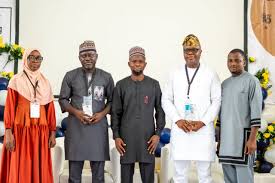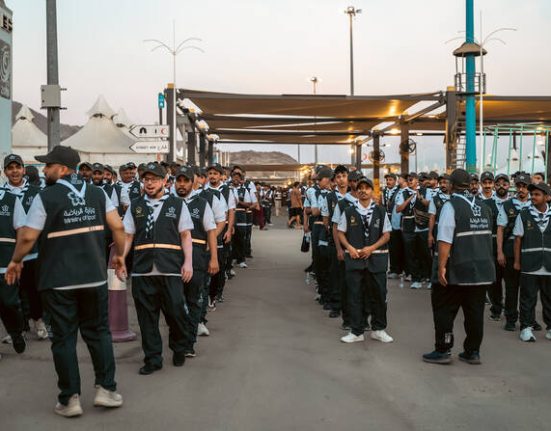In a strategic response to the rising complexities of today’s professional landscape, the Graduate Members’ Association (GRAMA), the alumni arm of the Muslim Students’ Society of Nigeria (MSSN), Lagos State Area Unit, has reiterated its commitment to grooming Muslim graduates for success in an increasingly volatile, uncertain, complex, and ambiguous (VUCA) world.
This resolve was showcased at the association’s 2024 Annual Conference, hosted at the University of Lagos, Akoka, with the theme: “The Future of Work: Adapting to a Changing Landscape.” The event drew leading experts across corporate and entrepreneurial sectors who engaged hundreds of attendees in critical conversations on innovation, adaptability, and values-driven professionalism.
Delivering the keynote address, Mr. Dimeji Salaudeen, Partner and Head of Infrastructure, Government and Healthcare at KPMG Nigeria, explored how remote work and digital transformation are redefining productivity across industries. He emphasized that while technology opens new doors, it also demands a conscious investment in both soft and technical skills. “Beyond qualifications, today’s professionals must master emotional intelligence, collaboration, and digital tools to remain competitive,” he said.
Echoing similar sentiments, Mr. Abayomi Ajao, founder of Zulfah Academy, urged young professionals to resist the temptation of comfort zones, especially in the tech sector. “There will always be two categories in tomorrow’s workplace: the users and the builders. To stay relevant, you must build — build your skills, your solutions, and your relevance,” he advised.
Also speaking at the event, Mr. Lateef Surakatu, a Partner at Andersen Nigeria, underscored the importance of interpersonal competencies, warning that technical proficiency without effective communication and critical thinking was no longer enough to stand out. He challenged attendees to invest in personal development, especially in public speaking, business writing, and team leadership.
Representing the legal sector, Mrs. Azeezah Muse-Sadiq, Partner at Banwo & Ighodalo, addressed a recurrent issue faced by many Muslim women in corporate settings. Reflecting on her journey in the legal profession, she reaffirmed that religious identity and professional excellence are not mutually exclusive. “The hijab does not limit a woman’s intellect or competence. Confidence and clarity of purpose are your best assets,” she stated.
In a panel on workplace wellness, Engineer Faheed Oladeji, CEO of Omnicom Solutions, and Dr. Halimat Adedeji-Adenola, a public health pharmacist, examined the rising prevalence of burnout and mental stress among young professionals. They encouraged employers to create psychologically safe spaces and lead with empathy in order to retain top talent and foster innovation.
President of GRAMA, Mr. Abdulkabeer Kuye, described the conference as a strategic intervention designed to bridge the knowledge gap between academic learning and real-world demands. He urged young Muslim professionals to remain purpose-driven and proactive in their career journeys. “In a world that rewards problem-solvers, we must build a generation that not only adapts but leads,” he remarked.
Speaking further, the MSSN Lagos State Area President, Mallam Kamoldeen Abiona, revealed that the association is developing a dedicated recruitment and consulting outfit under the GRAMA platform to further enhance employment support for its members. “Our vision goes beyond spirituality and student support — it extends to long-term professional empowerment,” he said.
The conference, which blended professional mentoring with Islamic ethics, has been widely commended as a timely initiative, particularly amid Nigeria’s growing youth unemployment and underemployment challenges. Data from the National Bureau of Statistics (NBS) puts Nigeria’s unemployment rate at 5.0% as of Q4 2023, with underemployment still affecting many skilled graduates — a concern GRAMA seeks to address through its forward-looking engagements.
As Nigeria continues to grapple with economic instability, skill displacement, and a shifting global workforce, GRAMA’s proactive approach may well serve as a blueprint for other faith-based and professional groups seeking to bridge the gap between identity and employability in a 21st-century economy.







